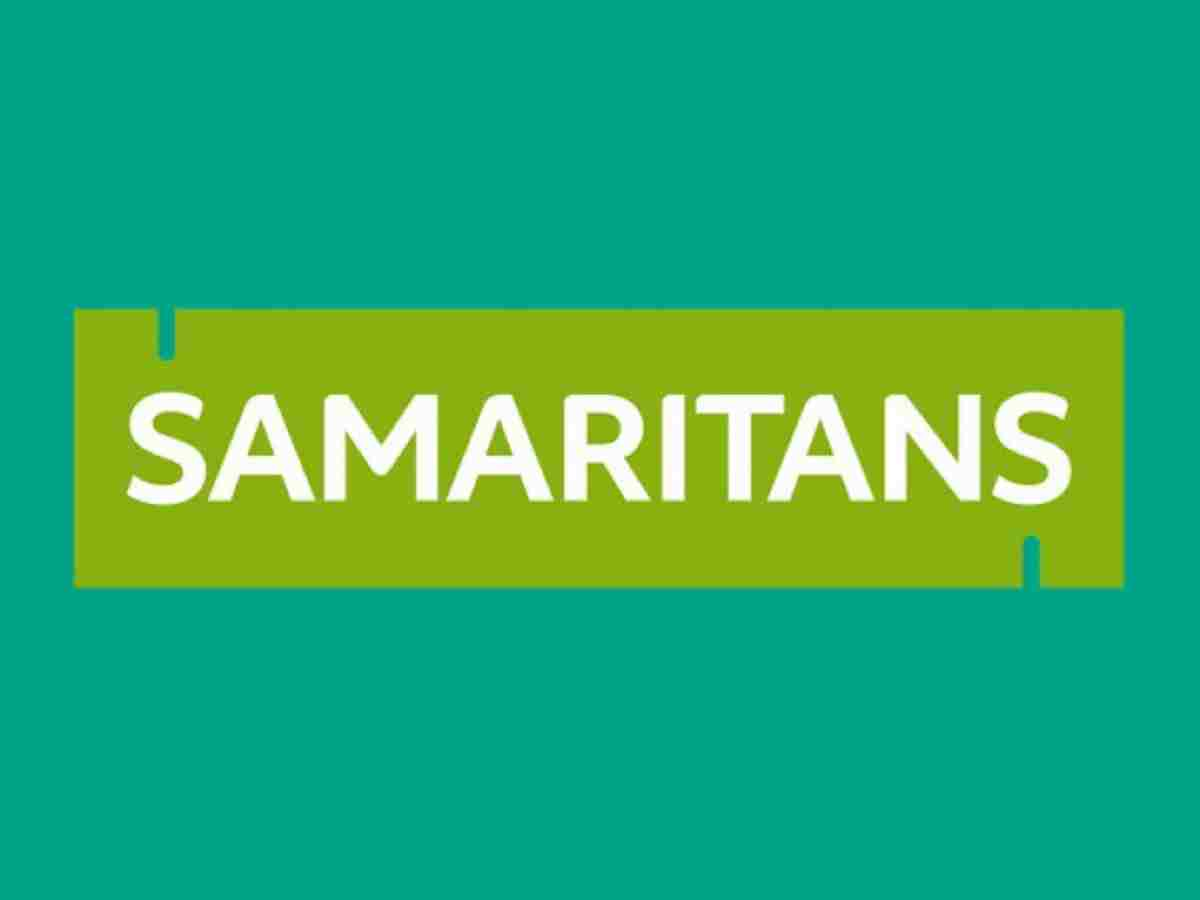Content warning: this article contains references to suicide, trauma, and mental health that some readers may find distressing.
On its website, social media, and adverts across the net, mental health support line Samaritans boldly proclaims its proud strapline:
We’re always here to listen.
However, when reaching out to the service, one caller found that this isn’t actually in fact the case. Now, the person who reached out to Samaritans has flagged the policy she came up against to the Canary. This was one that the charity does not well publicise – and that caught her out in a moment of crisis. It’s crucial information for people that rely on its service.
In short, the Samaritans has a policy to block telephone numbers for 30 days after a certain length or volume of calls – leaving people at risk
However, more than that – it also raises significant cause for concern from a crisis helpline that can be the difference between life and death for its callers.
Samaritans: a controversial policy under wraps
In 2023, Samaritans answered more than 3.3m calls for help. It means that volunteers took a call every ten seconds. The organisation’s impact report for the year also detailed how it had spent more than 900,000 hours talking to people by phone, email, online chat, by letter, or in face-to-face settings at its branches, in prisons, and local events.
Of course, the enormous volume of calls the charity fielded from people in distress comes amidst astronomical numbers of people awaiting access to NHS mental health services. This currently sits somewhere north of a million people, although the NHS doesn’t currently provide definitive data on this.
So, this article isn’t to overlook the dedication of Samaritans employees and volunteers, and the essential service they provide to people going through mental health crises.
However, an under-publicised policy a caller brought to the Canary’s attention does warrant scrutiny. And at minimum, the caller felt it’s something that the Samaritans should be more transparent about to those utilising its service.
What’s more, it’s a policy that in the context of these protracted NHS waiting lists for mental health support, could be putting vulnerable people at significant risk. It’s therefore critical the public are made aware of this.
At the same time, it’s necessary to explore how the Samaritans is operating under flawed neoliberal-rooted assumptions prevalent across mental health services that have compounded harm for people living with serious trauma.
Lifeline suddenly, abruptly cut off
Disabled campaigner Helen Timson lives with complex post-traumatic stress disorder (CPTSD) and acute stress. She has regularly accessed the Samaritans service support in moments of need and told the Canary that it had:
been my life line for many years.
But, when she made a call to the telephone service one day, it was not the usual friendly voice of a Samaritans volunteer who greeted her. Instead, a pre-recorded message relayed to her:
We’re concerned about the length of time this number has spent in contact with Samaritan volunteers in the last thirty days. We would really like to talk to you about how best we can support you.
The automated response proceeded to direct her to the caller support team at the Samaritans central office. But notably, contact times for this were limited between office hours 9am to 5pm on Mondays to Fridays. After detailing how she would need to get in touch with the team, it stated that:
Otherwise, the restriction will remain in place for thirty days.
Helen immediately issued a complaint to the charity. Initially, it sent her a generic response that failed to address her multiple concerns about the policy itself. After a second response that once again broadly ignored her main complaints about the existence of the policy, the caller support team finally sent an email with more information. It explained that:
It sounds like you have hit one of our restrictions on your number – we do understand that it can come as a shock to hear one of these messages when you’re not expecting it, and we appreciate you getting in touch.
Phone numbers, which are restricted in relation to call volume, are picked up on an automatic system at Samaritans Central Office if they have made over a certain volume of calls or spent over a certain amount of time talking to volunteers. The current threshold for Talk Time is currently set at 20 hours over a rolling 30-day period and the threshold for Volume of Calls is 100 calls in a rolling 30-day period. Telephone numbers are also picked up and restricted if a call has been logged by volunteers as Contacts Not Tolerated by Samaritans.
Samaritans: ‘Always here to listen’?
Understandably, Helen was shocked at this response. She told the Canary that:
I was appalled to learn of this dangerous Samaritans policy, which I believe is all about cost-cutting. This policy not only betrays the wonderful people who volunteer and donate to the Samaritans but also undermines their slogan, ‘There is always someone here to listen.’ It seems that slogan should come with a caveat: ‘Unless we have barred you for needing to call us frequently.’
However, it was the harm that this could cause to other callers that alarmed her most of all. She went on to express this concern to the Canary, saying:
I challenge the Samaritans to produce a single mental health expert willing to state that this policy helps 100% of those affected and puts zero lives at risk.
Of course, Helen is right to raise this point. People reaching out to the Samaritans could also get caught out by this policy just as she did. Given that people use its telephone line in moments of distress, this could add to people who are experiencing mental health crises isolation during times of extreme vulnerability.
Caught out in moments of distress
And notably, what the organisation came back with only compounded the issues with the policy. Specifically, the Samaritans’ reasoning for it raises a number of red flags. The customer support team told Helen in an email that:
It is our experience that calling very frequently or spending many hours talking to volunteers via the helpline may increase someone’s dependency on the support we provide, the more someone becomes reliant on our support, the more we see their contacts increasing. We have seen that us having the chance to speak to someone at the earliest opportunity about our concerns may help to reduce this risk, and to ensure we provide an appropriate level of support within the boundaries of our service which is both helpful and sustainable going forwards.
Of course, there are some distinct problems with this.
For one, the response indicates that the Samaritans policy seems to make the assumption that people making multiple calls within a month are becoming dependent on its service. Given that Samaritans will be fielding calls from people with a wide range of different mental health problems, the one-size-fits-all assessment simplifies what could be a multitude of factors for people repeatedly accessing its service.
Many are likely to be on the NHS’s long waiting lists for mental health services. Others may be socially isolated – and the Samaritans the only safe, accessible service people feel comfortable turning to.
Affecting others in distress too
The Canary found examples online of other people whose numbers the Samaritans had blocked for a thirty-day period for exceeding its thresholds. One conveyed how the Samaritans suddenly cutting off support had made them feel “lost and suicidal”. The person detailed how the Samaritans had been vital emotional support since their severe social anxiety had prevented them from seeking in-person professional therapy. This was from a post in 2018 – suggesting that the policy has been in place for some time.
Another – from October 2024 – expressed how she felt like “a piece” of her “safety net” had been taken away from her. Worse still, she described how someone from its customer support team who’d called her to explain she’d phoned its helpline too much, “didn’t seem to care” that she’d been using its service more frequently due to grief at her mum’s recent passing.
On a more practical level, the call number limit could also pose problems in a number of ways. Someone else who’d hit the limit highlighted that for them, poor mobile phone service had meant she often had to phone back multiple times. In this way, she’d quickly hit the 100 call threshold within thirty days. Besides this, it also doesn’t take into account shared landlines or mobile phones, meaning different people could be using the same number.
Of course, these are just the people who’ve opened up about their experience online. There are likely to be many others who’ve gone through the similarly traumatic situation with the Samaritans policy too.
Problematic ableist, misogynistic theories of dependency
Moreover, the Samaritans reasoning also appears to rest on a problematic, ableist Western psychiatric approach which pathologises patients’ so-called dependency on mental health services.
In particular, this revolves around a number of controversial theories, including:
- Discredited Freudian psychosexual conceptualisation of dependency as immaturity.
- Gendered mental health stereotypes that equate dependency as femininity, and that this is inherently a bad, unhealthy thing.
- Rampantly ableist stigma of dependency as synonymous with weakness, which is also rooted in misogyny.
In these ways, the negative concept of dependency is ableist towards chronically ill and disabled people.
Western glorification of individualism and independence over collectivism and interdependence also influences this mental health model which negatively pathologises dependency. Alongside this, it lacks cultural sensitivity. In the context of these Western social ideals, mental health services over-pathologise people whose cultures celebrate interdependency – such as those with Asian heritages.
And notably, this controversial idea of dependency is something that NHS mental health services have applied to various services. These have weaponised patients’ supposed ‘dependency’ to withhold care – and have particularly wielded against people diagnosed with personality disorders. In these contexts, it’s also part of a neoliberal model of healthcare which emphasises reducing services for cost-saving purposes.
A 2022 report into the mental health services for borderline personality disorder (BPD) patients under the Tees, Esk and Wear Valleys NHS Trust encapsulated this:
The notion of ‘avoiding patient dependency’, as promoted by services, is most certainly not being used in a manner supportive of patients, rather, it is more than likely an attempt at chicanery to covertly ration resources and withhold care from “undesirable” patients.
Heightening harm and the risk of suicide
Unsurprisingly, there are also dangers to withholding this care. Mental health service survivor, activist, and researcher Wren Aves has explored the neglect of people labelled with a BPD diagnosis. Crucially, Aves has summed up the immense risk of withdrawing or withholding mental health care or support, writing that:
Discharge from services or a reduction in care, sympathy, compassion and understanding from
staff in response to the perception of patient dependency is well-documented and can be seen
as a form of malignant alienation, increasing distress and the risk of patient suicide
Ultimately, Aves pointed out that this paradigm in mental health services is based on the perverse premise that withholding support to avoid dependency, is:
helping keep their patients safe… as if their patient being dead is somehow a better outcome than them relying on healthcare services for support.
At its most basic level, this model views mental health patients with frequent need for support as a problem, rather than people understandably needing help.
It seems entirely out of step with the Samaritans ethos of always being there to listen. Yet, this stigmatising, harmful model appears to form the basis of its contentious, largely hidden policy.
Restricting access to its service
This was fairly evident in the rest of the customer support team’s response to Helen. While it explained how the policy was sometimes to signpost callers to external organisations that would be “better suited to support them”, it also described how “if felt appropriate” the Samaritans would:
discuss/offer a support plan whereby we may call a caller on agreed days and times; if this is agreed, then we would ask that the caller does not call helpline themselves as we want the support to be consistent and focused within the parameters of the support plan.
All callers on a support plan will be encouraged to create the content of the support plan with us so that it helps the caller from having to repeat their story, they will also be offered a copy for future reference. Frequent reviews will take place during this time between the Caller Support team and the caller to ensure the plan continues to meet the agree aims, which is ultimately to get a caller back to being able to self-manage their contacts within the boundaries of the service.
In other words, it places a strong emphasis on autonomy and personal responsibility as positive outcomes from withholding its usual 24/7 support. But it’s based on largely bunk behaviourist theories that perpetuate myths of this neglect serving to empower patients, when instead it can actively put them at risk.
The Charity Commission: a toothless regulator
The Samaritans seemed unwilling to publicise this policy more openly. Helen had suggested at minimum that the charity should give advanced warning to frequent callers they could fall foul of this call limit. The customer support team said only that:
We have considered this possibility ourselves but unfortunately our telecom system does not have the capability to do this at the moment so currently we are not able to make this change.
Since the Samaritans essentially doubled-down in defending its policy, Helen decided to submit a complaint to the Charity Commission. However, she once again came up against a brick wall. In particular, the commission determined that the complaint was outside its remit, since it:
cannot take up individual complaints like the one you have raised about poor service from a charity.
Moreover, it told Helen that it had:
been unable to identify wider safeguarding or governance concerns.
Overall, Helen has contested that it does in fact present significant safeguarding concerns. What’s more, the commission’s email detailed that:
When making our decisions, we consider the issue and look at the risk to anyone who comes into contact with the charity, along with the risk to the charity itself.
However, the commission didn’t seem to take into account how the Samaritans policy could be putting people at risk. Given this, she has escalated by raising a complaint about the commission itself. To add insult to injury, the email also seemed to indirectly recognise the impact the policy had on Helen, writing that:
I understand that this must have been a challenging and distressing time for you. In your correspondence you have made reference to your mental health and I would encourage you to seek additional support if you require it – for instance, by visiting your GP or local authority to see what assistance is available in your local area.
Yet, this is of course ironic in the context of people reaching out to the Samaritans due to the inaccessibility of the very local support the commission referred to.
The Canary reached out to the Charity Commission for comment. It told us that:
After receiving a complaint about Samaritans’ helpline policy, we assessed the information provided and determined that this is a matter for the trustees of the charity. We take all concerns raised with us seriously and so should we receive any new information we will assess this in line with our published framework.
However, Helen articulated to the Canary her frustration over the regulator’s seeming inability to take action as part of its legal duties and role. She expressed that:
if they won’t take any action about this, then why do they even exist?
Samaritans: review the policy or risk lives
Ultimately, the Samaritans provides an essential service to huge numbers of people across the UK. However, this policy and the basis for it could be putting some callers at risk. It also undermines its message that people can call at anytime, and Samaritans will always be there to listen. In reality, that isn’t the case for some who regularly reach out for its help.
In response to the Canary’s questions over this policy, executive director for operations at Samaritans Lis Skeet said:
Samaritans answers a call every ten seconds and we need to make sure our volunteers are available to help as many people as possible. People who call us very frequently tend to need more dedicated support than we can offer and so we ask that they speak to our specialist team who will help to meet their needs within the boundaries of our service. However, we regularly review caller thresholds and will be doing so again next year.
The Canary also spoke to Dr Iain Caldwell, director of mental health organisation Making Sense Of about the Samaritans policy. He questioned the underlying reasoning the Samaritans had provided for it:
The important question is, what’s on offer? It’s a listening service – established to deal with people in crisis, experiencing isolation and distress.
The fundamental issue is a severely disconnected society, reduced social contacts, loss of community and an over reliance on institutional services that view a person as having something wrong with them.
Whereas we need to move towards a relational, asset based approach, that activates the persons inner resources and capabilities.
How does the Samaritans approach the problem? Where’s the mutual aid and peer support? Why didn’t the good service evolve, organically? How does it learn and grow? These are all the questions we should be asking.
On the dependency premise, he told us that:
From a well-being perspective, relational by definition is two way. This builds understanding and wellbeing. Mattering is adding value and feeling valued. Therefore it’s human to be dependant on each other. If someone is lonely or isolated, then there is a story behind that plus a need for human contact. Maybe we should be looking a little deeper at the underlying factors, then address them.
The Samaritans 2023 report noted that in a quarter of calls, people expressed suicidal feelings. So, by not being transparent about its policy, it could very well be endangering people’s lives. Given this, Samaritans should take Helen’s calls to review this controversial policy very seriously. Whether it will do so remains to be seen.
Featured image via screengrab




